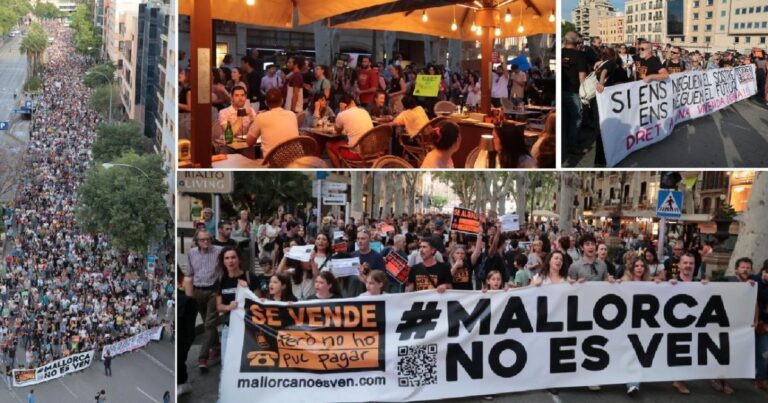The British travel association Abta has called on the UK travel industry to take “seriously” protests against overcrowding and mass tourism in Mallorca. Abta told Travel Weekly it was in contact with local authorities. A spokesman said: “The protests are not against tourism to the island or targeted at tourists. The protesters were expressing concerns about how tourism is being managed.” Ben Lynam, head of communications at the Travel Foundation, called for the protests to be taken seriously.
“Mallorca is in the midst of issues that are affecting our whole industry,” he said, adding: “Destinations have limits and tourism is only welcome if it respects those limits and the community. Businesses will increasingly have to accept limits as not only necessary but desirable.” And a recent survey revealed that the protests have made Brits hesitant to book holidays to Mallorca this year, while another survey carried out by the Mallorca Daily Bulletin found that 62 per cent of readers believe there are too many tourists coming to Mallorca.
Authorities in the Balearic islands and Spain have tried to take a tough stance on the issue, but airport transfers expert Hoppah says searches in Mallorca are down 15 percent compared to last year, while destinations like Turkey and Greece are up 45 percent and 35 percent respectively. Organizers of the latest protests have also warned that they will continue taking to the streets until the Balearic government acts and takes measures to tackle the housing crisis and tourist overcrowding.
“This is just the beginning,” said Javier Barbero, one of the organizers of a 10,000-strong demonstration in Palma a few weeks ago. He believes the protests helped the government take “immediate measures” to stop property prices from collapsing, and one of the measures he lists as urgent is to declare the Balearic Islands a housing crisis zone and impose state legislation on them.
“If reality is denied and measures are not taken, we will be in the streets until action is taken,” he said. “We want to condemn the housing situation, but we also think that with respect we need to rethink the tourism model,” he said. “We are not saying ‘no’ to tourism,” Barbero said. Tourism generates 45 percent of the island’s gross domestic product, according to data from tourism industry group Exceltur.

